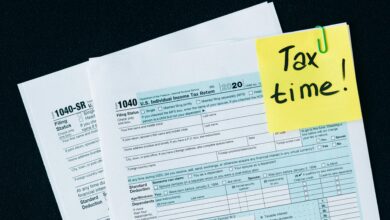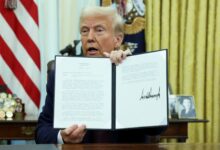Tesla Stock in Freefall: The Impact of Donald Trump’s Tariffs on the Global Economy
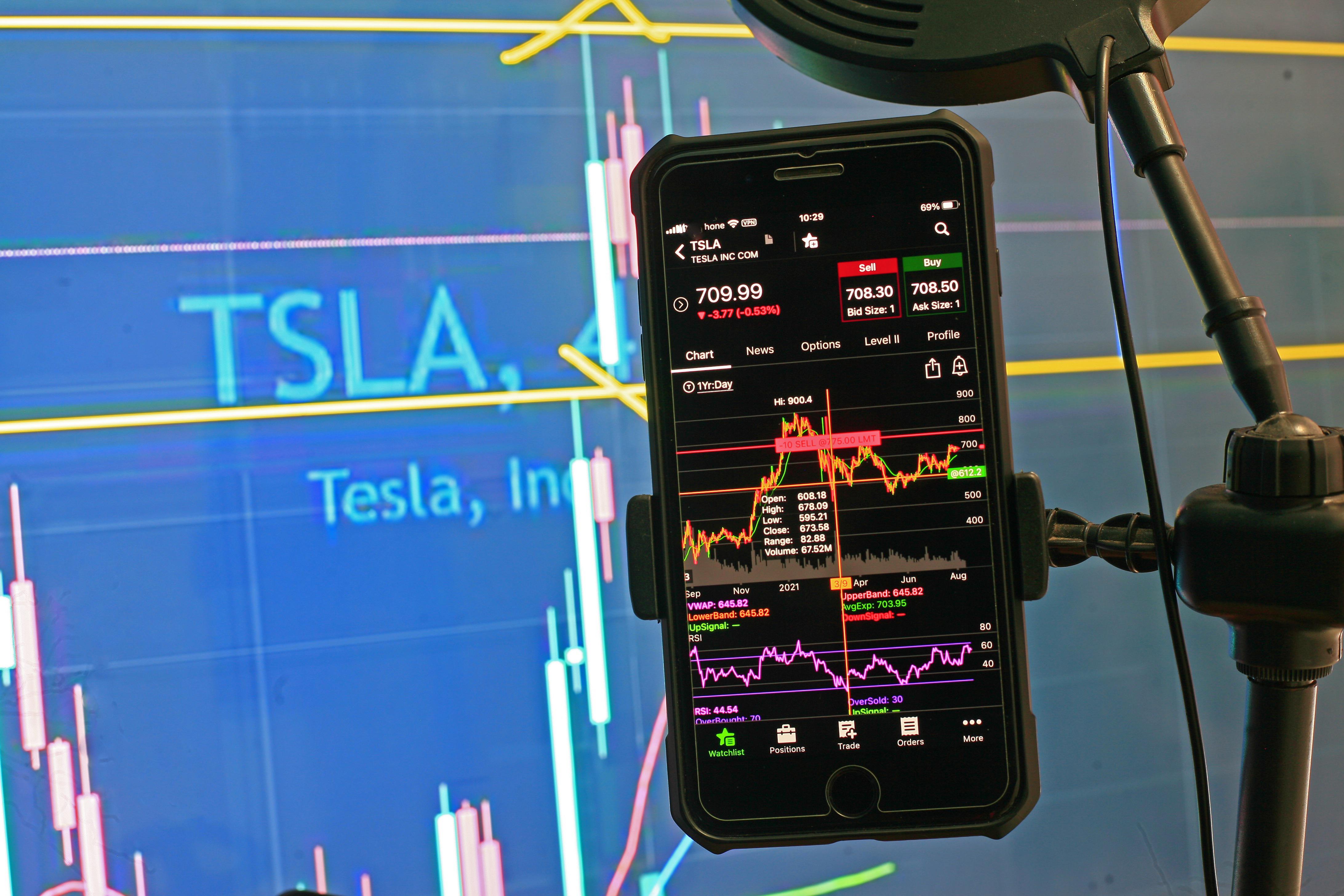
The global economy is reeling today as businesses and investors scramble to make sense of the fallout from former President Donald Trump‘s controversial “reciprocal tariffs.” These tariffs are throwing a major wrench into the United States’ reliance on foreign goods, and the effects are being felt all over the world. Wall Street is in shambles, and tech companies, in particular, are feeling the pain. Tesla, led by CEO Elon Musk, is one of the companies hit hardest by the current market turmoil.
What are “Reciprocal Tariffs”?
To understand what’s going on, we first need to break down what reciprocal tariffs are. Simply put, reciprocal tariffs are taxes that one country imposes on another country’s imports, in response to similar taxes levied by the other country. In this case, Trump’s decision to raise tariffs on various foreign goods was aimed at reducing America’s dependence on imports and encouraging domestic production. However, the consequences have been more severe than many anticipated.
Trump’s tariffs are part of a broader strategy to shift global supply chains away from China, where much of the production of critical materials and products takes place. The problem? This move has thrown the existing US-dominated global supply chain into complete chaos. Countries that depend on US trade, including China, are pushing back, and tariffs are being introduced from all sides. This has led to a volatile situation, with global trade increasingly disrupted.
Wall Street: A Bloodbath
As a result of the tariff war, Wall Street has taken a significant hit. In just two days, the US stock market lost a jaw-dropping $5 trillion in market value, with the S&P 500 seeing its worst performance since the shock of the pandemic in 2020. Tech stocks, which rely heavily on international trade, were hit especially hard. One company in particular is feeling the effects more than most: Tesla.
Tesla’s Stock Crashes Amid Tariff Backlash
Tesla, the electric vehicle (EV) giant led by Elon Musk, has had a tough time over the past few months. Despite being one of the most valuable companies on the planet, Tesla’s stock has taken a serious dive. Musk’s company posted losses in 10 out of the last 11 weeks, with no signs of improvement on the horizon.
On Friday, things took a turn for the worse. Tesla’s stock price plunged almost immediately after China announced its own retaliatory tariffs in response to Trump’s import tax policies. China imposed a 34 percent tariff on US-made products, adding fuel to the fire for companies like Tesla, which rely heavily on Chinese minerals and labor to produce their vehicles.
By the end of the day, Tesla’s stock had dropped by a stunning 10 percent. It’s part of a broader trend that has seen the company’s stock value plummet by nearly 44 percent since Trump took office. For a company that once appeared to be on an unstoppable trajectory, these losses are concerning, to say the least.
Read More:
- Wall Street Reels as Trump’s Tariffs Trigger Market Turmoil
- Mr. Cooper Joins Rocket Companies in a Landmark $9.4 Billion Mortgage Merger
- New Executive Order by Trump Set to Enhance Cryptocurrency and Launch Digital Asset Reserve
The Bigger Picture: Tesla’s Struggles Go Beyond Tariffs
While the tariff war is certainly playing a major role in Tesla’s current troubles, it’s not the only factor at play. Tesla’s quarterly sales results have been dismal, falling lower than even the worst predictions. In fact, Tesla’s most recent sales numbers mark a three-year low, signaling deeper issues with demand for their products.
Analysts are now predicting that Tesla will experience a second straight year of declining sales. This doesn’t bode well for Tesla’s future as a so-called “growth stock.” Growth stocks, like Tesla once was, are typically seen as companies with high financial growth potential. These stocks are viewed as almost a guarantee for investors looking to make money in the stock market.
However, with demand for Tesla vehicles struggling and the broader economy in turmoil, it’s unclear whether Tesla will be able to maintain its growth status. This is particularly concerning for Musk and his investors, who have long been betting on the company’s future success.
A Recession on the Horizon?
As if Tesla’s problems weren’t bad enough, the larger economic outlook isn’t much better. Many experts believe that the global economy is heading toward a recession. The tariff war, combined with other factors such as rising inflation and increasing unemployment rates, is putting pressure on businesses around the world. This makes it harder for companies like Tesla to maintain the same level of profitability they once enjoyed.
If a recession does indeed hit, it could have serious consequences for Tesla’s future. As people tighten their wallets and postpone big-ticket purchases like cars, demand for Tesla’s EVs could decline even further. This would add another layer of difficulty for a company already struggling with weak sales and a volatile stock market.
Musk’s Personal Fortune Takes a Hit
Elon Musk, who holds a massive stake in Tesla, is not immune to the financial fallout. His personal wealth is closely tied to Tesla’s stock price, so when the company’s value drops, so does his net worth. Thanks to Trump’s tariffs and the broader economic instability, Musk has seen his fortune shrink significantly. In fact, Musk’s net worth took a dive of around $11 billion, or 2.5 percent, in the wake of the tariff news.
Back in March, Forbes reported that Musk’s total net worth had dropped by a staggering $104 billion since Trump took office in January 2021. Now, with the new tariffs and the growing risk of a global recession, it’s possible that Musk’s wealth could take an even bigger hit in the coming months.
This is a stark reminder of how deeply interconnected the fates of tech companies like Tesla are with global economic trends. While Musk may still be one of the richest people in the world, the reality is that his fortunes are at the mercy of a volatile stock market and shifting political landscapes.
The Global Fallout: What’s Next?
As the world braces for more economic turbulence in the weeks ahead, it’s clear that Trump’s tariffs have set off a chain reaction that could reshape global markets. While some economists argue that the long-term benefits of reducing reliance on foreign trade could be positive, the short-term effects are undeniable: businesses are struggling, stock prices are tanking, and the global supply chain is in disarray.
For Tesla, the outlook is particularly grim. With the company facing weak sales, growing competition, and a broader economic slowdown, it’s unclear how the company will rebound. Investors are getting nervous, and Musk’s personal wealth is shrinking. As a result, Tesla’s future growth prospects are increasingly uncertain.
In the coming months, we can expect to see more volatility in the stock market, especially in the tech sector. As countries like China retaliate against Trump’s tariffs, businesses will continue to struggle, and companies like Tesla will

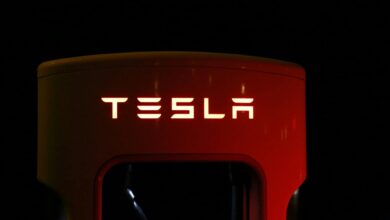
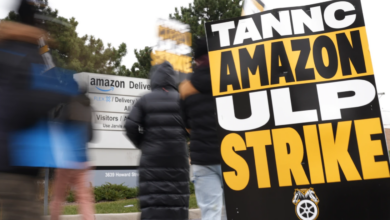
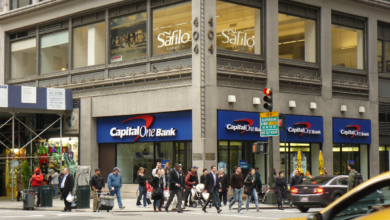



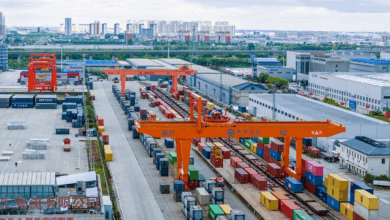

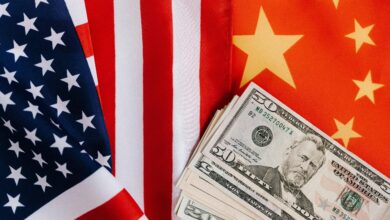
![Xi Jinping meets Cambodia’s PM Hun Manet at Peace Palace, Phnom Penh – April 17, 2025 [AKP/Reuters]](https://theworldseye.com/wp-content/uploads/2025/04/2025-04-17T120007Z_1791565247_RC2NZDAP58BL_RTRMADP_3_CHINA-SOUTHEAST-ASIA-CAMBODIA-1744896414-390x220.jpg)
